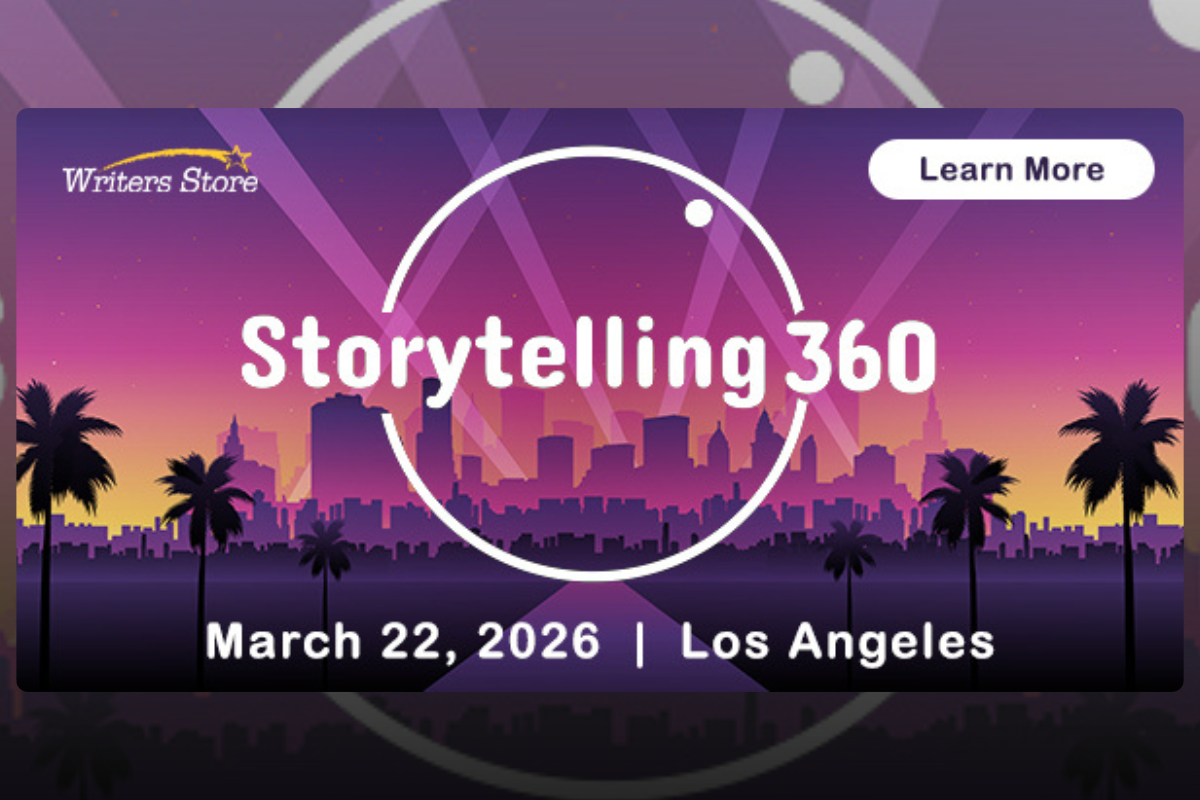Karl Gajdusek and ‘Oblivion’
Mid-April isn’t most studios’ first choice for bringing out a tentpole. But Universal may start a trend if it hits a home run with Oblivion, directed by Joseph Kosinski from…
Mid-April isn’t most studios’ first choice for bringing out a tentpole. But Universal may start a trend if it hits a home run with Oblivion, directed by Joseph Kosinski from his own comic book adventure. An intriguing mystery wrapped inside a stylish postapocalyptic scifi thriller, Oblivion offers Tom Cruise his best action role in years – hell, his best role of any type – as tech whiz Jack Harper, patrolling a nuked Earth to smack down the remaining alien beings whose 2017 invasion brought about all the carnage. Think Planet of the Apes (any number of iconic Earth landmarks are shown sticking out of the dust) meets Aliens, with a little 2001 and The Black Hole Man Vs. Machine stuff tossed in for good measure. Yet it all feels very fresh, and it sure is beautiful.
Co-writer Karl Gajdusek talks about the pleasures of working in genre on “a Pinter play on a $170 million canvas.” He advises on the care and feeding of movie stars, and talks about where sci fi may go next.
What should people know about Oblivion, going in?
You don’t need to know too much. It’s a classic mystery sci fi, world-isn’t-what-you think-it-is story. It gets set up, and then crumbles under you as the characters’ knowledge shifts.
You should know that it’s a interesting mix between a classic thinking person’s sci fi born of the 70s authors, mixed with a kind of popcorn sci fi of the present. It makes for a interesting ride back and forth, between conceptual and action-based science fiction.
How did you get involved?
I had come across Joe’s original vision for this – which he’d published as what’s called an “ashcan,” which is a cousin to a graphic novel – about a year before my involvement. I had seen it and thought “this is the greatest thing ever,” and I had gone full court press with my agent to get involved. But I was not able to because William Monahan, who had an Oscar under his belt, got first crack at it. He created a wonderful script that was, perhaps, his own baby and not so much Joe’s baby. So at that point they brought me on to finish the work, and also to bring it into what Joe’s vision was.
What did you bring to it? What was the work like?
Two things. One was listening to Joe and trying to figure out what in his heart this movie was. And the other thing was, from the minute I had come across the original conception of this film, it had spoken to me. The movie is everything I ever wanted to do as a dramatist and as a screenwriter. It’s essentially a Pinter play on a $170 million canvas! And I come from a dramatist’s background, so to be able to work on this intimate dramatic story, against this giant canvas, is pretty much why I do film, period. I got to run with the things that excited me so much to begin with, and breathe life into those characters and what I saw as the conceptual romantic triangle of the film.
Does a writer have to do some control work on his ego, when he’s working as part of a team on something like this?
Yes and no. A screenwriter in Hollywood working in the studio system better have a pretty good handle on their ego, because you aren’t going to run wild like a bad boy or bad girl. You’re going to be assimilating different peoples’ vision and being a craftsperson some of the time. In the studio system if you can’t be a craftsperson, and assimilate certain notes and certain visions that aren’t your own, you probably won’t go far.
That said, they’re paying for your arrogant, weird, crazy, creative ego. That’s why they pay you – to bring your writer self. So it’s a interesting dance. If you’re basically just a craftsperson, and you just show up and say “I take notes well” – well then, why would they possibly pay you for that? There’s a million people that can do that!
They are paying for bratty genius. And yet bratty genius must be able to accommodate notes. It’s a funny tap dance.
Of course I have to ask: What’s it like working with Tom Cruise?
I worked with Tom for two or three weeks, and it was really cool. First of all, he’s got a producer’s mind as well as an actor’s mind – I mean, my God, he ran UA for a while, he ran a studio. So he thinks about story very personally and also very “produ-sorially” at the same time, which is cool to bounce up against. He’s very, very, very concerned about making sure there’s an authenticity to the underlying routine of the world; I’d say we worked for almost a whole week on what is it to be this guy. “He wakes up in the morning, but what’s his job? What’s it like? If he flies something, how fast does it go? If he has a weapon, how many rounds in the chamber?” There’s the minutiae of what he is before the plot kicks in.
Any advice on working with, and for, a movie star?
My experience is: Don’t get into a battle of who’s right. Because you can’t win that battle. If the star believes that something is wrong with the scene, and you come to him and say, “Everything is right about the scene; I researched it; I’ve done the calculations; I can prove to you that I’m right” – you’ve just lost that battle. Don’t get in that position. If the star has a problem with the scene, its going to be something in their gut that doesn’t feel right, and you’ve got to put yourself in their shoes and figure out what that is. Besting them doesn’t work. They’re out there in front of the camera doing it. They’ve made a career of trusting their guts, and your telling them that you’re smarter than them ain’t gonna fix that.
For a genre we’ve seen a lot of, Oblivion feels very fresh to me. Is there a lot of tension – while you’re at the computer, and then later in meetings – between making the action and character choices that are right for the story, versus going out of your way to do something that hasn’t been seen before in that genre?
That’s a subtle question. Genre is a bit of a trap. When you’re writing a science fiction thing and you’re a student of the form, you do have all the great moments of science fiction floating around in the back of your head. And you’re trying to avoid them, just because you don’t want to be seen as derivative. There are a couple of lines in Oblivion, when I watched it the other night when it premiered, and I was, like, “Oh my God, that’s right from Star Wars, how did we do that?” At one point Cruise is about to take off in the bubble ship and he says, “Hold on, this is going to get bumpy,” and that’s directly from Star Wars when they’re about to head into the asteroid field. Some lines just echo thru your unconscious and you think they’re the greatest lines ever, and then you realize you’re just copying something else great. I’ll say this, you don’t freak about it too much, and you just write what the good scene is. In rewriting, sometimes you realize you’ve strayed into your cultural memory accidentally. And usually you carefully take that out because yes, it will feel derivative.
So in what way does Oblivion stand out for you, stand apart?
Oblivion does something that I think people who write the history will appreciate. Joe has a different aesthetic than most people who have done science fiction in a long time. The gorgeousness of the film, the beautiful film-makery world that’s set up, is not the norm of science fiction of late, which owes more to Blade Runner and other dystopic visions like that. And to see Joe make such beautiful science fiction -- well, all I can say is, watch the next five years. I bet you’re going to see a lot of beautiful science fiction coming along.
Oblivion releases in theaters April 19, 2013. Watch the trailer here.
Related Articles:
- Jenna Avery's Sci Fi Circuit column
- Alt Script: Tell the Story, Tell the Story, TELL THE STORY
- Structure and Breaking In: An Interview with Syd Field
- More Screenwriter Interviews on ScriptMag
Get Noticed:
Bob Verini is the Los Angeles-based theater critic for Daily Variety, for whom he also contributes features on film, theater and television. Since 2000 he has been a senior writer for Script Magazine, also their resident go-to guy for all things Oscar related, and a frequent moderator of live screening talkback sessions and podcast Q&As on industry topics. By day, Bob is an academic director and teacher for Kaplan Test Prep and Admissions, welcoming your questions on standardized tests and stress management issues. Twitter: @BobVerini







